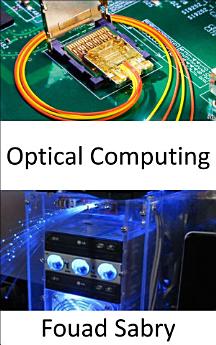Optical Computing: Photonic processors revolutionize machine learning, and promise lightning fast calculation speeds with much lower energy demands
Mayelana nale ebook
In optical computing, also known as photonic computing, light waves generated by lasers or other incoherent sources are used to perform computer tasks such as data processing, data storage, or data transfer. Photons have been shown their potential for some decades now to offer a larger bandwidth than the electrons that are employed in traditional computers.
How You Will Benefit
(I) Insights, and validations about the following topics:
Chapter 1: Optical computing
Chapter 2: Computing
Chapter 3: Quantum computing
Chapter 4: Timeline of quantum computing and communication
Chapter 5: Photonic crystal
Chapter 6: Quantum algorithm
Chapter 7: Quantum network
Chapter 8: Shlomi Dolev
Chapter 9: Fiber laser
Chapter 10: Interconnect bottleneck
Chapter 11: Photonic integrated circuit
Chapter 12: Silicon photonics
Chapter 13: Computer-generated holography
Chapter 14: Subwavelength-diameter optical fibre
Chapter 15: Optical transistor
Chapter 16: Orbital angular momentum multiplexing
Chapter 17: Photonic molecule
Chapter 18: Linear optical quantum computing
Chapter 19: Integrated quantum photonics
Chapter 20: JCMsuite
Chapter 21: Quantum memory
(II) Answering the public top questions about optical computing.
(III) Real world examples for the usage of optical computing in many fields.
(IV) 17 appendices to explain, briefly, 266 emerging technologies in each industry to have 360-degree full understanding of optical computing' technologies.
Who This Book Is For
Professionals, undergraduate and graduate students, enthusiasts, hobbyists, and those who want to go beyond basic knowledge or information for any kind of optical computing.











